We’ve identified six main elements that can substantially enhance the performance of home heat pumps.
By properly sizing the unit, using efficient models, implementing advanced control systems, practicing optimal maintenance, and employing energy-efficient installation techniques, homeowners can maximize their heat pump’s performance.
These factors, when combined, create a powerful synergy that not only saves energy but also ensures a comfortable living environment.
Join us as we delve into the details and explore how these factors can serve you and your home.
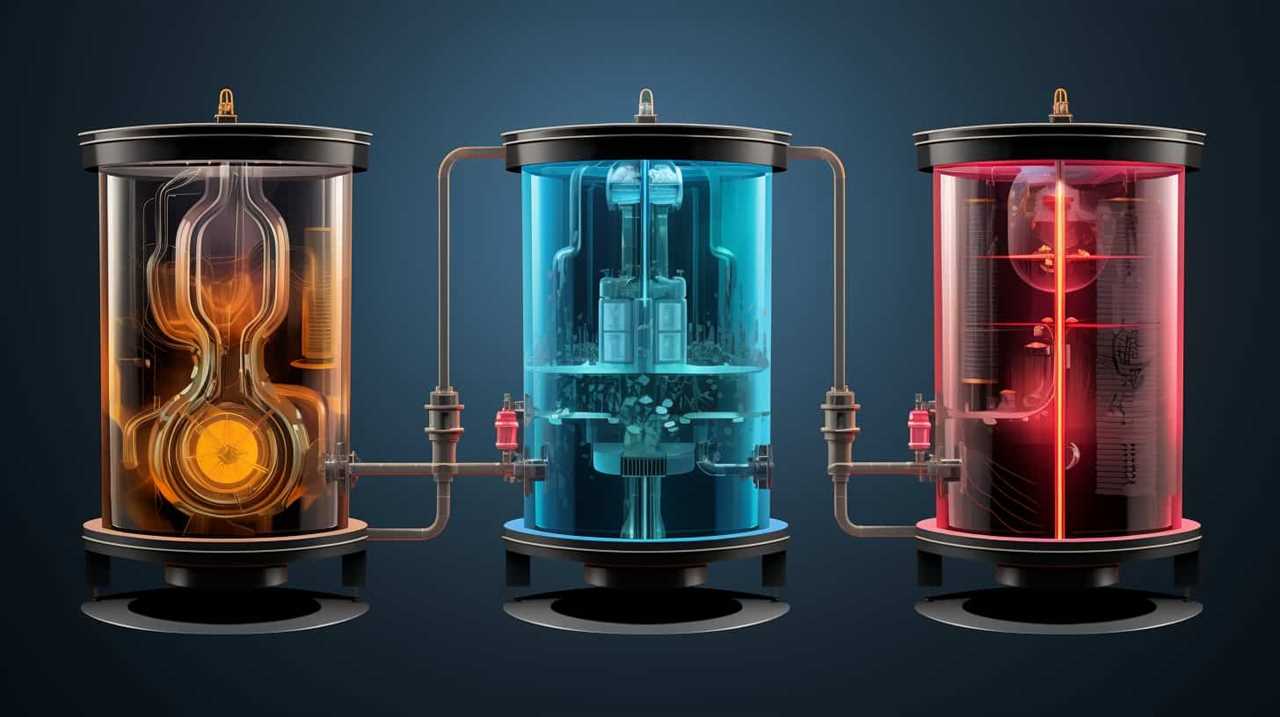
Key Takeaways
- Proper sizing of the heat pump unit is crucial for maximizing efficiency and avoiding energy wastage.
- The placement and orientation of the heat pump unit should be carefully considered to optimize airflow and avoid obstructions.
- Insulating and sealing the ductwork can significantly improve the efficiency of the heat pump system.
- Using high-quality materials during installation and following best practices can enhance the overall efficiency of the heat pump system.
Importance of Proper Sizing
Proper sizing is crucial for maximizing residential heat pump efficiency. When it comes to heat pump systems, there are several sizing considerations that must be taken into account.
The size of the heat pump must be appropriate for the size of the space it’s intended to heat or cool. A heat pump that’s too small will struggle to maintain the desired temperature, while one that’s too large will cycle on and off frequently, leading to energy waste and potential wear and tear on the system.
Professional installation is of utmost importance in ensuring the correct sizing of the heat pump. HVAC professionals have the knowledge and expertise to accurately assess the heating and cooling needs of a home and recommend the right size heat pump for optimal efficiency.
Efficient Heat Pump Models
For our analysis, we considered both air-source and ground-source heat pump models, as well as their respective advantages and disadvantages. When it comes to efficient heat pump models, there are several factors to consider that can significantly impact their performance and energy savings. Here are four key considerations:
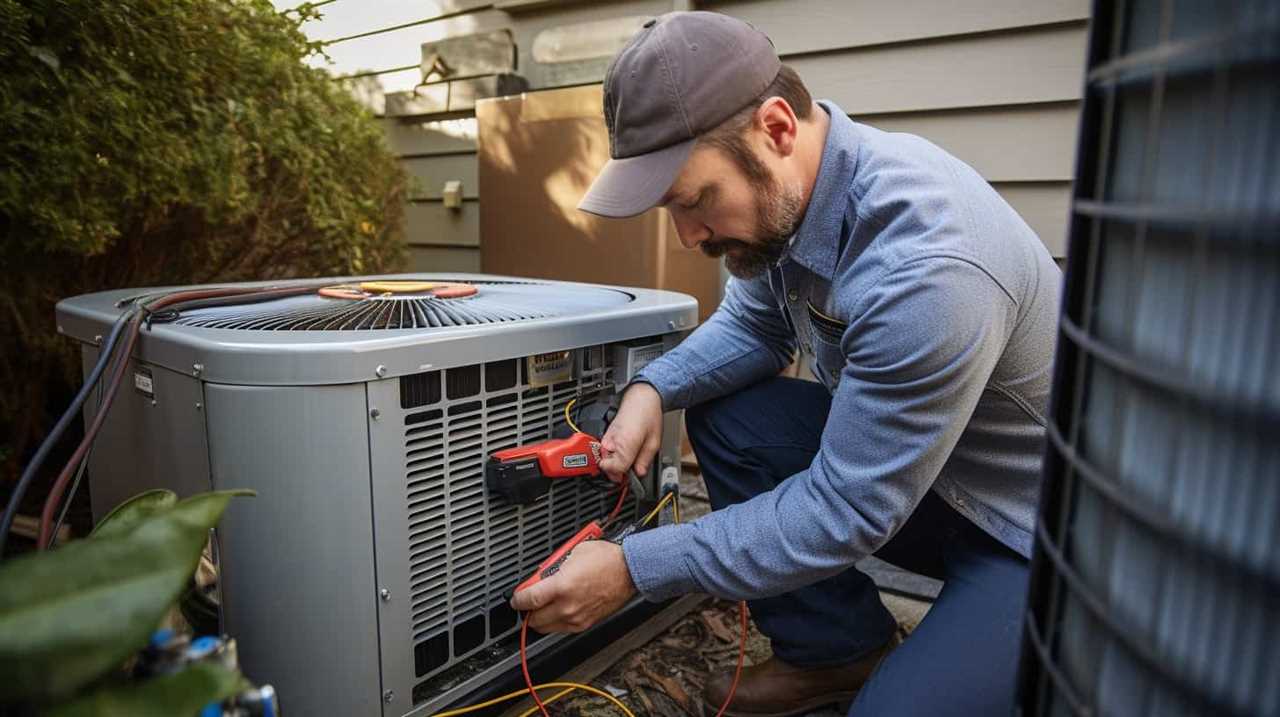
-
Smart Technology Integration: Heat pumps with smart technology allow for better control and optimization of energy usage, resulting in higher efficiency and cost savings.
-
Variable Speed Compressors: Heat pumps equipped with variable speed compressors adjust their operation based on the heating or cooling demands, providing precise temperature control and enhanced efficiency.
-
Enhanced Coil Design: Heat pumps with advanced coil designs improve heat transfer, allowing for better energy exchange between the refrigerant and the surrounding air or ground.
-
Energy Efficiency Ratings: Look for heat pump models with high Seasonal Energy Efficiency Ratio (SEER) and Heating Seasonal Performance Factor (HSPF) ratings, as these indicate greater energy savings.
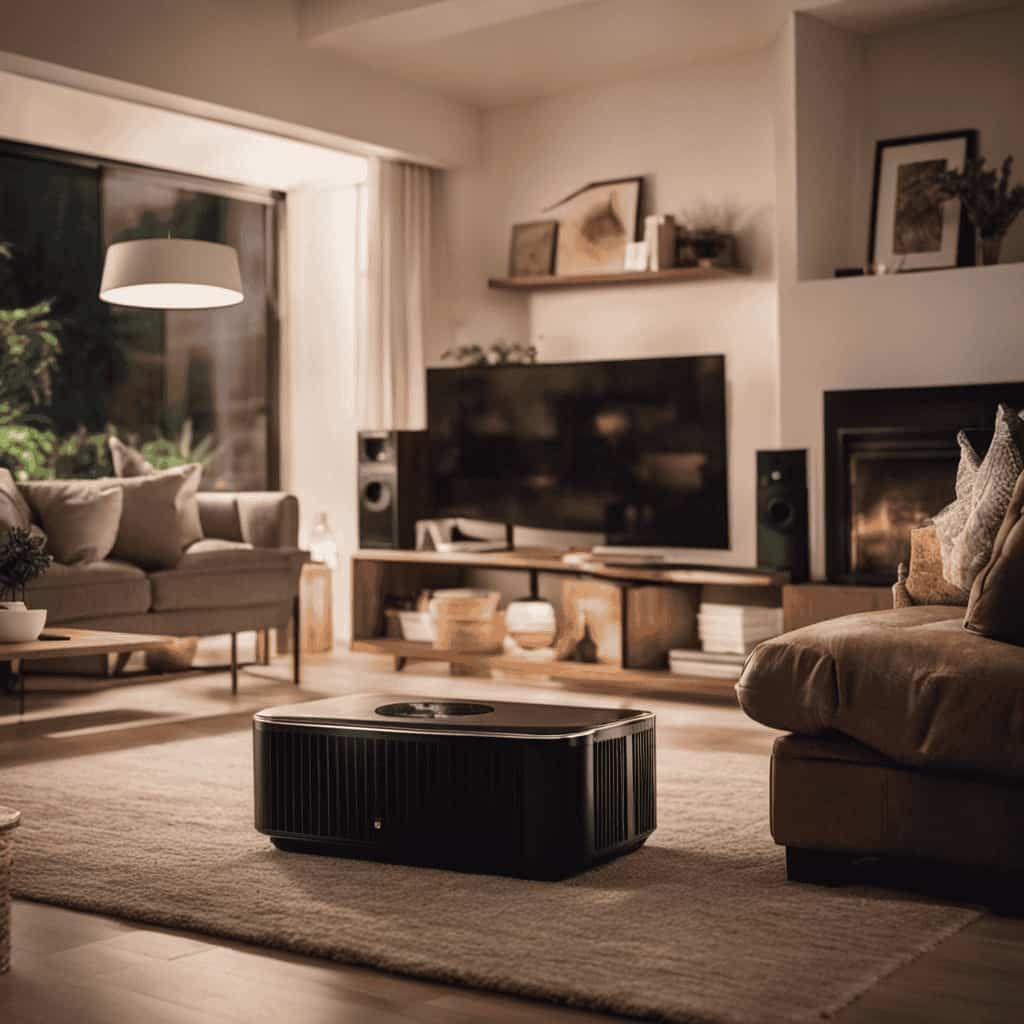
By considering these factors, homeowners can choose efficient heat pump models that optimize energy usage and provide significant cost savings.
Now, let’s delve into the importance of advanced control systems in further improving heat pump efficiency.
Advanced Control Systems
With the implementation of advanced control systems, we can optimize heat pump efficiency by effectively managing and regulating various operating parameters.
Smart technology integration plays a crucial role in this process, allowing for seamless communication between different components of the heat pump system. By utilizing smart technology, we can achieve better control over temperature settings, airflow rates, and defrost cycles, among other variables.
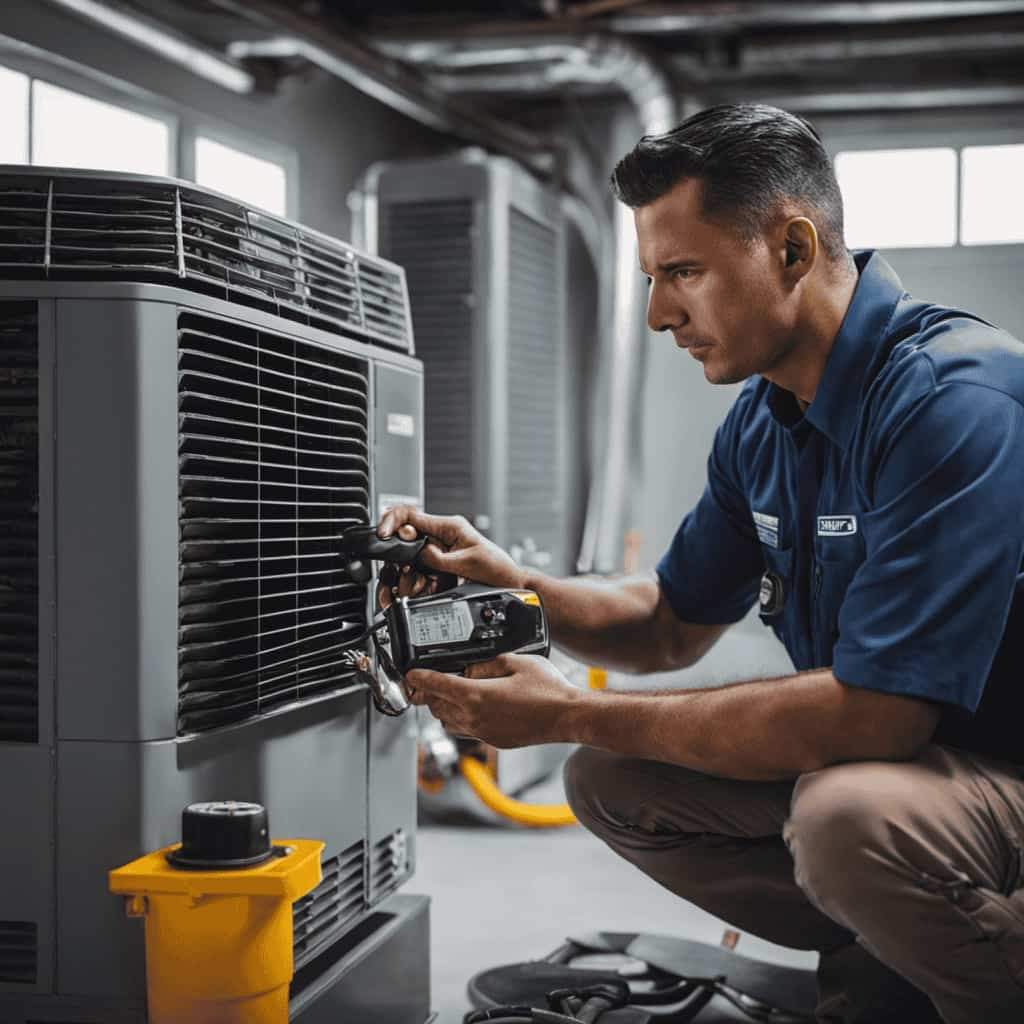
This integration also enables performance monitoring, providing real-time data on energy consumption and system performance. With this information, homeowners and service professionals can make informed decisions regarding system optimization and maintenance.
Advanced control systems not only enhance the overall efficiency of residential heat pumps but also contribute to better energy management and cost savings. By leveraging smart technology integration and performance monitoring, we can achieve optimal performance from our heat pump systems.
Optimal Maintenance Practices
By regularly inspecting and cleaning the components, as well as scheduling routine maintenance, we can ensure the optimal performance and longevity of our residential heat pump systems. To achieve this, here are some key practices to consider:
-
Regular servicing: It’s important to have a professional technician perform regular inspections and maintenance on your heat pump system. This will help identify and address any potential issues before they become major problems.

-
Cleaning the components: Dust and dirt can accumulate in the filters, coils, and fans of the heat pump, reducing its efficiency. Regularly cleaning these components will help maintain optimal airflow and heat transfer.
-
Seasonal adjustments: As the seasons change, it’s necessary to adjust the settings of the heat pump to ensure optimal performance. This includes adjusting the thermostat settings and switching between heating and cooling modes.
-
Monitoring performance: Keep an eye on the performance of your heat pump system and look for any signs of inefficiency or malfunction. This could include unusual noises, inconsistent temperature control, or increased energy consumption.
By following these maintenance practices, we can maximize the efficiency of our residential heat pump systems and ensure long-term reliability.
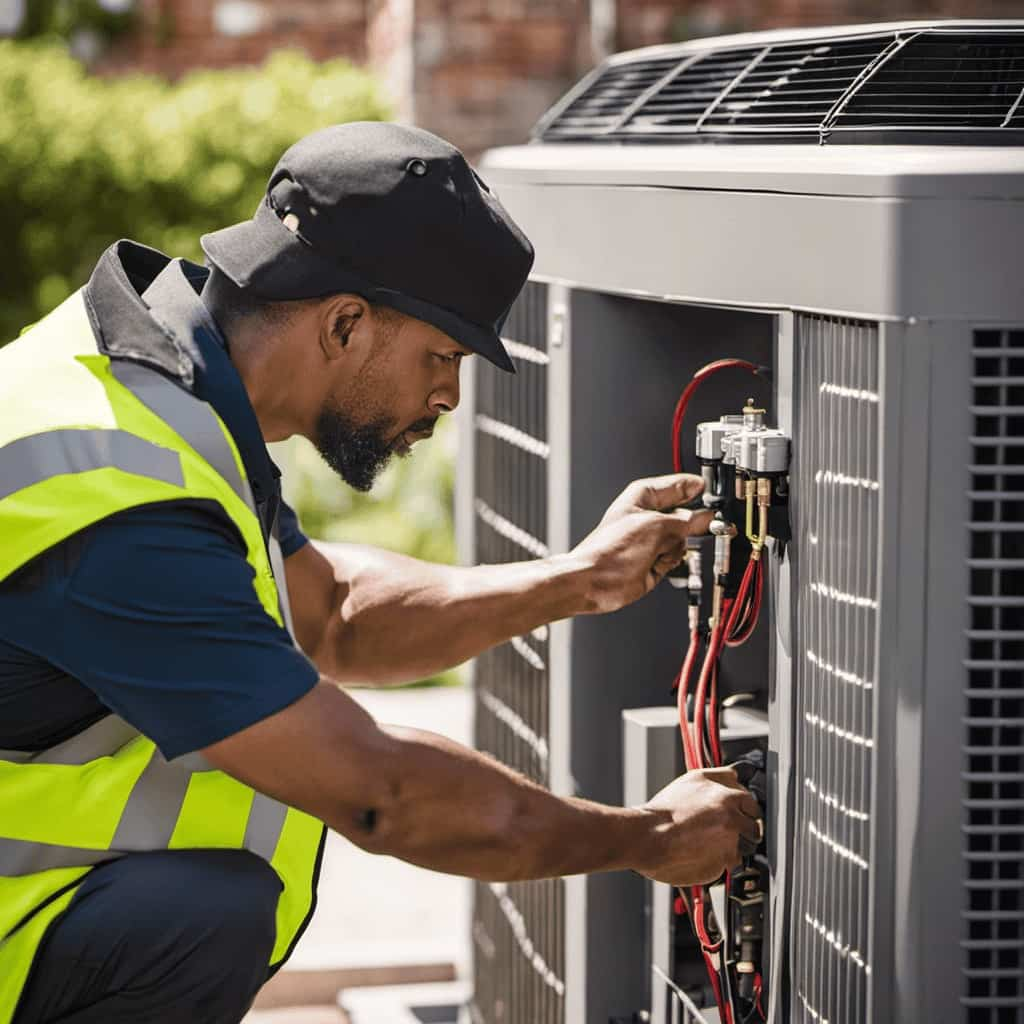
Now, let’s explore the next section on energy-efficient installation techniques.
Energy-Efficient Installation Techniques
To ensure maximum energy efficiency, we must carefully consider the installation techniques used for our residential heat pump systems. Energy-efficient design and best practices play a crucial role in optimizing the performance of these systems.
One important factor to consider is proper sizing and selection of the heat pump unit to match the specific heating and cooling requirements of the space. This prevents over or under-sizing, which can lead to energy wastage.
Additionally, proper placement and orientation of the heat pump unit can enhance its efficiency. This includes locating the unit in a shaded area, away from direct sunlight or other heat sources.
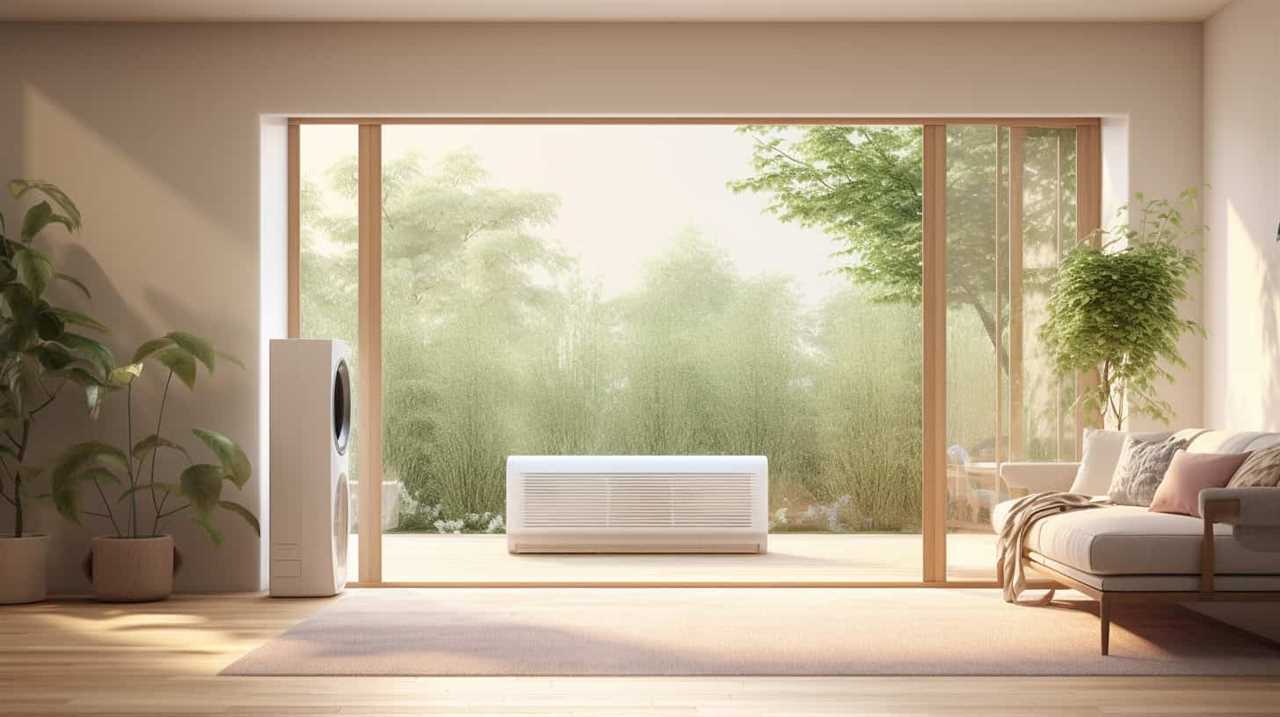
Furthermore, ensuring proper insulation and sealing of ductwork minimizes energy losses and improves overall system efficiency.
Lastly, utilizing quality materials and following manufacturer guidelines during installation helps achieve optimal energy performance.
Frequently Asked Questions
How Do I Determine the Proper Size of a Residential Heat Pump for My Home?
First, we need to determine the proper size of a residential heat pump for your home. This involves considering factors like square footage, insulation, and climate. By choosing the right heat pump, we can ensure optimal efficiency and comfort.
What Are the Most Efficient Heat Pump Models Currently Available in the Market?
The most efficient heat pump models currently available in the market are the ones from the most reliable heat pump brands. They offer numerous benefits, including the use of geothermal heat pumps for increased efficiency.
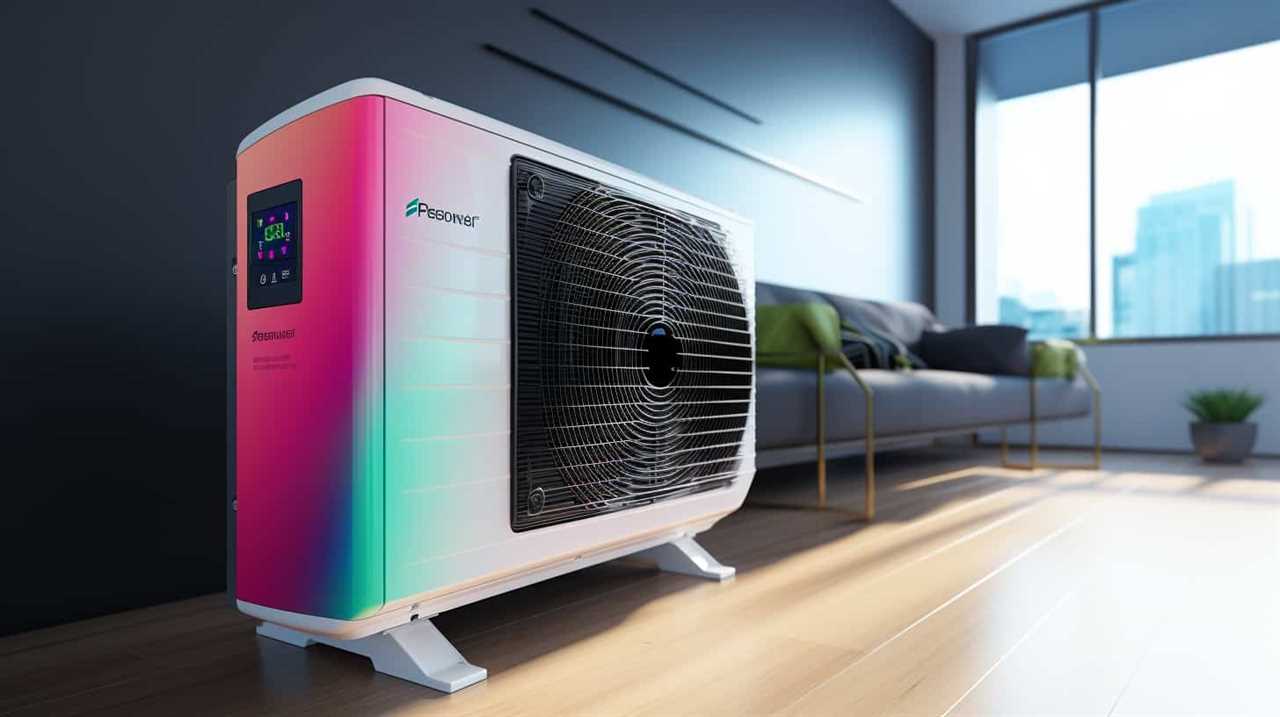
Can Advanced Control Systems for Heat Pumps Help Reduce Energy Consumption Further?
Yes, advanced control systems for heat pumps can help reduce energy consumption. By optimizing performance and adjusting settings based on real-time conditions, these systems maximize efficiency, leading to lower energy usage and cost savings.
What Are Some Optimal Maintenance Practices to Ensure the Longevity and Efficiency of a Heat Pump?
To ensure optimal heat pump efficiency, we must prioritize maintenance practices. Regularly cleaning and replacing air filters, checking refrigerant levels, and keeping outdoor units clear of debris are just a few key steps to increasing longevity and efficiency.
Are There Any Specific Energy-Efficient Installation Techniques That Can Improve the Performance of a Residential Heat Pump?
Energy efficient installation techniques and performance improvement techniques can greatly enhance the effectiveness of a residential heat pump. By implementing these strategies, we can ensure optimal energy usage and maximize the overall performance of the system.
Conclusion
In conclusion, by considering factors such as:
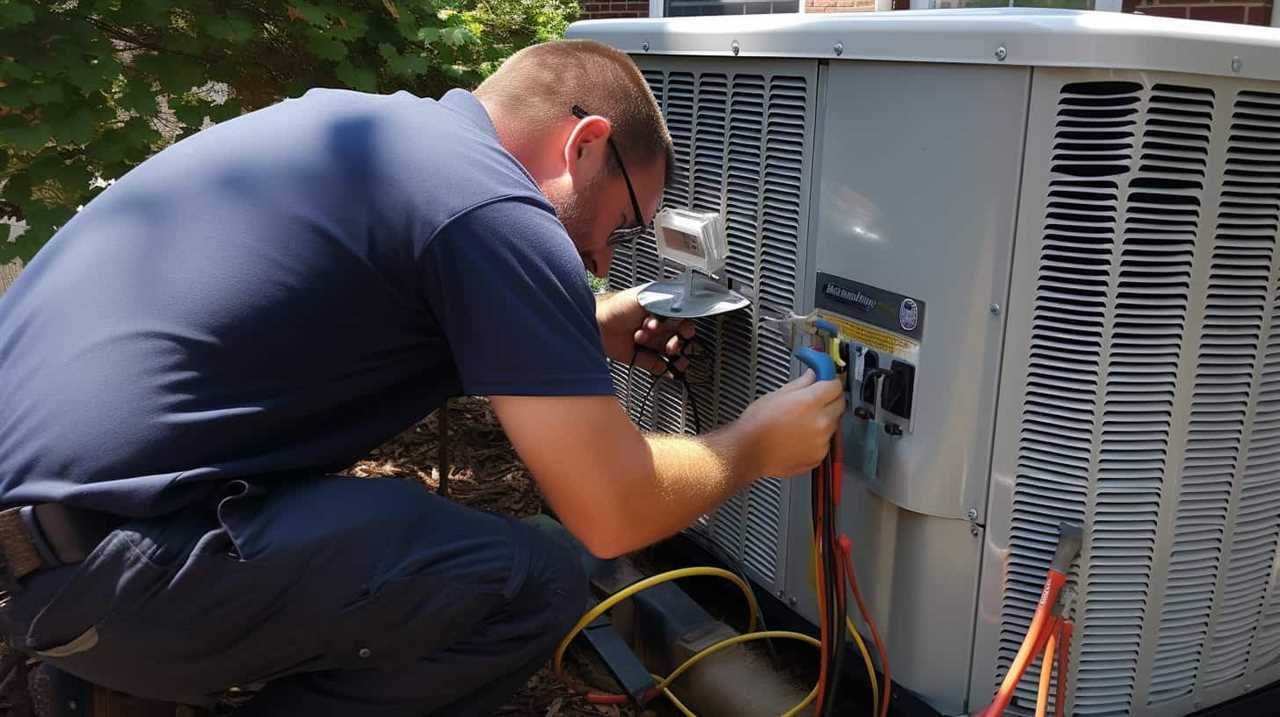
- Proper sizing
- Efficient heat pump models
- Advanced control systems
- Optimal maintenance practices
- Energy-efficient installation techniques
Residential heat pump efficiency can be significantly boosted. This is akin to a well-tuned orchestra, where each instrument plays its part harmoniously, resulting in a symphony of energy savings.
By implementing these key factors, homeowners can enjoy:
- Improved comfort
- Reduced energy consumption
- A greener future.









